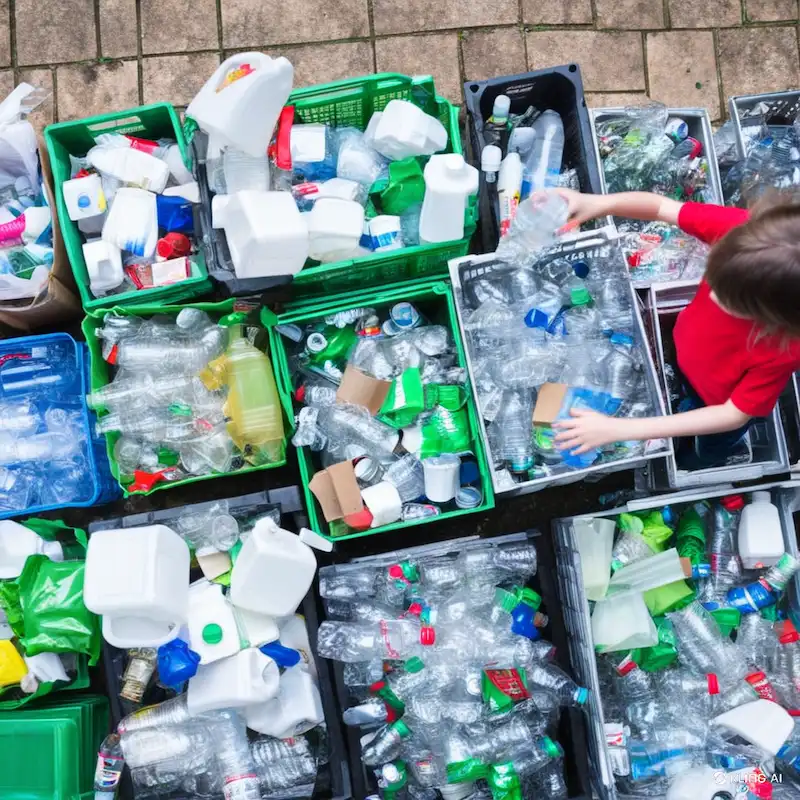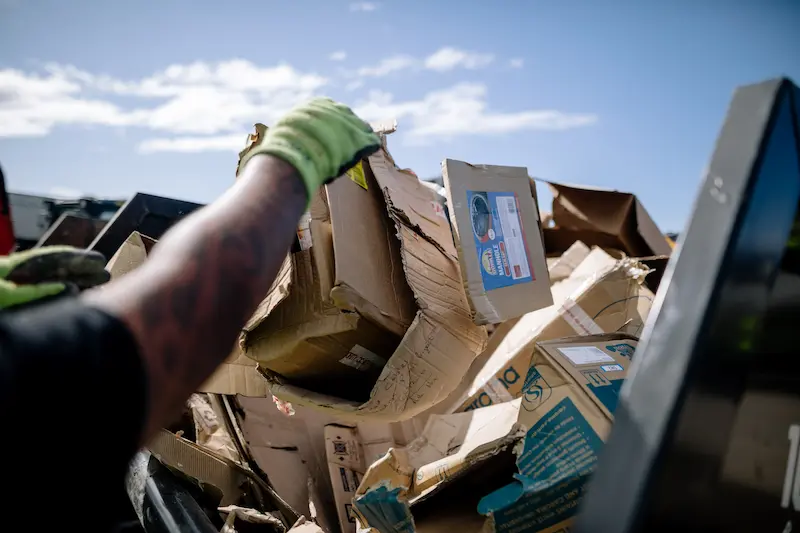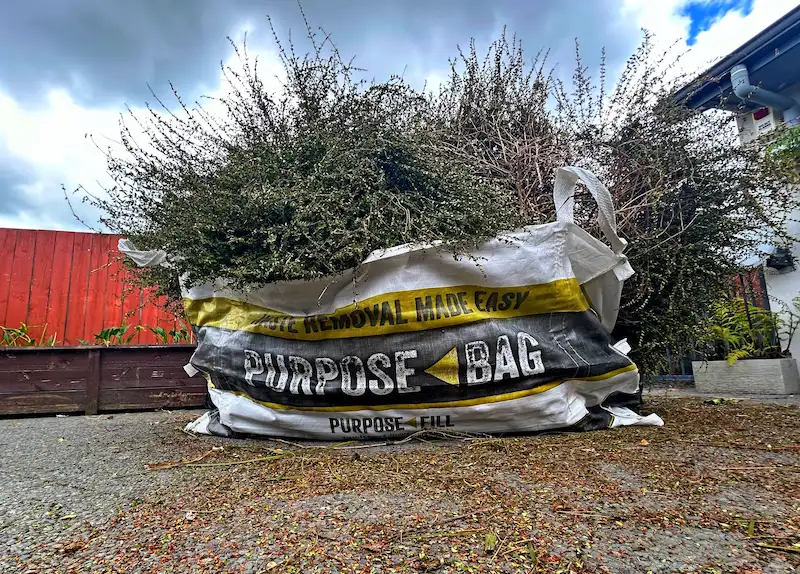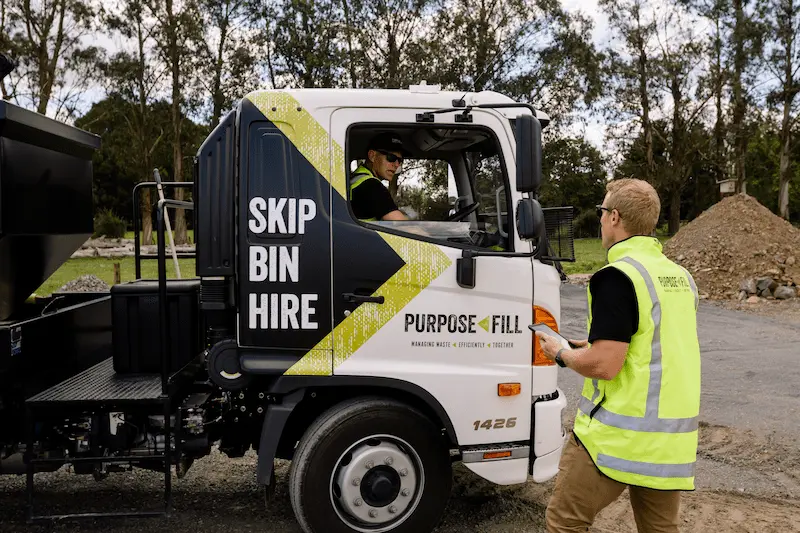How to manage commercial waste disposal for your Waikato based business
Waikato business owners! As a responsible business owner, you understand the importance of managing commercial waste effectively. Not only is it crucial for maintaining a sustainable and legally compliant business, but it’s also essential for safeguarding our beautiful environment and fostering a greener community.
At Purpose Fill, we’re passionate about helping Waikato businesses like yours manage their waste in a responsible and efficient way. As one of the top-rated waste removal services in the region, we’ve got the expertise and knowledge to guide you through the process.
Why effective commercial waste management matters
Commercial waste, including paper, plastics, food scraps, and hazardous materials, is produced by businesses of all sizes. It’s a significant problem that requires a thoughtful and proactive approach. Managing this waste responsibly isn’t just about ticking boxes and meeting regulatory requirements; it’s about taking care of our environment, reducing landfill impact, and creating a healthier community for everyone.

Proper waste disposal also has numerous benefits for your business. By managing your waste effectively, you can save time, reduce costs, and avoid headaches associated with non-compliance. Plus, it’s a great way to showcase your commitment to sustainability and social responsibility, which can enhance your brand reputation and attract customers who share your values.
How to properly manage commercial waste for your Waikato business
Managing commercial waste is a crucial part of maintaining a sustainable and legally compliant business in Waikato. If you’re looking for expert guidance on how to handle waste effectively and efficiently, Purpose Fill, one of the top-rated waste removal services in the Waikato region, has you covered.
Why effective commercial waste management matters
Commercial waste, including paper, plastics, food scraps, and hazardous materials, is produced by businesses of all sizes. Managing this waste responsibly isn’t just about compliance; it’s about safeguarding the environment, reducing landfill impact, and fostering a greener community. Proper waste disposal also saves businesses time, money, and headaches.
Types of commercial waste
Understanding the various types of waste your business generates is essential for creating an effective waste management plan. Each type of waste requires unique handling, disposal, and recycling methods to comply with New Zealand’s environmental regulations.
Below, we dive deeper into the most common categories of commercial waste:
1. General Waste
General waste includes the everyday rubbish produced by most businesses, such as food scraps, packaging materials, and non-recyclable plastics. While general waste can encompass a broad range of materials, it’s important to note that this category should be minimised as much as possible to reduce landfill impact. General waste often ends up in landfills, contributing to environmental pollution, so finding alternatives—like increasing recycling efforts—is key.
Common items in general waste include:
- Non-recyclable packaging (plastic wrappers, mixed-material packaging).
- Broken items that are not fit for recycling (ceramics, damaged furniture).
- Food waste, though it’s better managed through composting systems.
2. Recyclable Waste
Recyclable waste covers materials that can be repurposed through recycling programs. These include paper, cardboard, plastics (such as PET or HDPE), glass, and metals. New Zealand businesses are required to sort recyclable materials from general waste to ensure they can be processed and reused. Separation at the source not only helps reduce landfill waste but also supports the local recycling economy.
Recyclable materials include:
- Paper and cardboard: Newspapers, office paper, cardboard boxes.
- Glass: Bottles and jars (must be clean and free from contaminants).
- Plastics: PET bottles, containers marked with recycling symbols.
- Metals: Aluminium cans, steel scraps.
It’s essential to properly separate and clean these items, as contamination (such as food remnants in recyclable containers) can render them non-recyclable.
3. Organic Waste
Organic waste, which consists of biodegradable materials, is commonly generated by businesses in the hospitality and food industries but can also come from offices. This category includes food scraps, green waste – like grass clippings or plant trimmings ( which is something out Purpose Bag is ideal for ) , and paper towels. Composting is one of the best ways to deal with organic waste, turning what would otherwise go to a landfill into nutrient-rich soil. Implementing an organic waste disposal system can significantly reduce the volume of general waste a business produces.
Common sources of organic waste:
- Food scraps: Leftovers, fruit and vegetable peels, coffee grounds.
- Green waste: Garden clippings, leaves.
- Compostable packaging: Some businesses use compostable packaging which can also be included in organic waste.
4. E-Waste (Electronic Waste)
E-waste refers to discarded electronic devices such as old computers, phones, and other gadgets that have reached the end of their useful life. This type of waste is particularly important to manage properly because it often contains hazardous materials like lead, mercury, and cadmium, which can contaminate soil and water if not disposed of correctly. E-waste recycling programs in New Zealand allow businesses to safely dismantle and recycle valuable components like metals, glass, and plastic.
Examples of e-waste:
- Computers: Laptops, desktops, and accessories.
- Mobile devices: Phones, tablets.
- Office equipment: Printers, photocopiers, fax machines.
- Cables and chargers: Electrical cords, power adapters.
Businesses should always ensure their e-waste is sent to certified recyclers who can safely handle and repurpose these items.
5. Hazardous Waste
Hazardous waste includes materials that are dangerous or potentially harmful to human health and the environment. This type of waste requires special handling and disposal methods to ensure safety and compliance with New Zealand regulations. Hazardous waste can include anything from chemicals and solvents to medical waste and batteries.
Common types of hazardous waste include:
- Chemicals: Cleaning solvents, paints, industrial chemicals.
- Batteries: Lead-acid batteries, lithium-ion batteries used in electronics.
- Medical waste: Items like syringes or bandages from medical facilities.
- Fluorescent lights: Contain mercury, a toxic substance.
Disposing of hazardous waste properly ( we at Purpose Fill dont do these kind of projects ) is crucial to prevent soil, water, and air contamination. Businesses should work with licensed hazardous waste disposal services to ensure that these materials are treated or recycled in accordance with local laws.
For an extensive list of accepted materials we at Purpose Fill can help you dispose of check out here
The importance of waste minimisation
Minimising waste at your business is not just about reducing disposal costs; it is also about reducing environmental impact. Purpose Fill encourages businesses to adopt more sustainable waste practices by offering tailored solutions that address different types of waste, allowing businesses to contribute to environmental preservation and reduce landfill use.
According to Queenstown Lakes District Council, minimising waste brings numerous benefits:
- Cost savings through reduced landfill charges.
- Positive business image, demonstrating a commitment to sustainability.
- Compliance with New Zealand’s environmental regulations.

How Purpose Fill can help your Waikato business
Whether you’re a small office or a large-scale operation, working with a trusted partner like Purpose Fill ensures your business waste is managed efficiently.
1. Tailored Waste Management Plans
Purpose Fill offers bespoke waste management solutions that cater to the specific needs of your business. Whether you need frequent collections or support in waste segregation, Purpose Fill ensures that the right bins are provided for every type of waste, from general to hazardous.
2. Skip Bin Solutions
For businesses that generate a large amount of waste, skip bins are a go-to solution. Purpose Fill offers various skip bin sizes, from small office needs to large construction sites. These bins make waste collection easy and help prevent multiple trips to the landfill.
3. E-Waste Disposal
Electronic waste is particularly tricky to handle because of the hazardous materials it may contain. Purpose Fill ensures that all e-waste is collected and recycled appropriately, adhering to New Zealand’s strict e-waste disposal guidelines.
Benefits of using a local commercial waste service in Waikato
Partnering with a local waste disposal service like Purpose Fill offers several key benefits:
- Local Knowledge: Being based in Waikato means Purpose Fill understands the local council regulations and landfill charges.
- Fast Response: A local service can provide quicker, more responsive waste removal.
- Community Support: Working with a local business supports the Waikato community and helps build strong relationships with eco-friendly waste processors in the region.
Cost-effective solutions
Cost is often a significant concern for businesses, but managing waste doesn’t have to be expensive. Purpose Fill’s commercial waste disposal service offers flexible pricing based on the volume and type of waste, ensuring you’re not overpaying. Here are some factors that influence waste disposal costs:
- Volume and frequency of collections.
- Type of waste (hazardous waste may incur additional fees).
- Location of your business.
By working with Purpose Fill, you can receive a free quote to better understand the cost and savings your business could benefit from.

Steps to reduce commercial waste in your business
Here are a few simple strategies for waste minimisation:
- Set Up Waste Stations: Make it easy for your staff to dispose of waste responsibly by providing clearly labelled recycling, general waste, and organic waste bins.
- Implement Digital Solutions: Reduce paper waste by switching to digital invoicing, record-keeping, and communication.
- Recycling and Composting Programs: Ensure you recycle as much as possible and compost organic waste to reduce the volume going to the landfill.
- Train Your Staff: Waste management should be a part of your business culture. Ensure your team understands the importance of waste segregation and recycling. Host workshops or competitions to make it engaging.

Easy convenient and cost-effective and eco-friendly!
